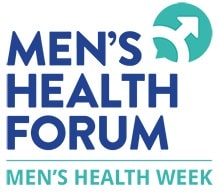Men’s Health Week 2014 specifically focused on health in relation to work, unemployment and stress, as health issues have been increasingly noticed following hardship brought upon men as a consequence of the recession, and issue which was far too often overlooked. This year, healthy living for men will be the main focus of Men’s Health Week, taking place from the 15th to the 21st June 2015.
Promoting a healthier lifestyle and aiming to increase awareness of specific diseases, illnesses, and conditions related to unhealthy habits often showcased by men (such as excessive drinking, eating, smoking, and a reluctance towards routine check-ups and consultations), this week will be challenging men to change their routines for healthier alternatives. Indeed, smoking, drinking, and food overconsumption are likely to lead to serious diseases, notably heart diseases and strokes which are more prone to developing. Although women are more prone certain illnesses such as dementia and Alzheimer’s, heart problems in particular are increasingly experienced by men due to the laxer diet that is often permitted due to the common stereotypical belief that it is feminine and ‘womanly’ to watch your weight, and metrosexual to take care of your body.
Yet most fail to realise that with good life hygiene and a nutritious diet comes a strong immune system, health, and thus stability. The reluctance to consult when ill or injured is also a common behaviour observed in men, most likely due to a social pressure to display what is thought of as ‘manliness’, fighting diseases and showing strength and endurance as associated with a prehistoric basic hunting instinct that tells us to fight nature and battle the elements whilst striving for survival. “Men are less aware of their symptoms than women, and are more reluctant to seek help” says Peter Baker, Chief Executive of the Men’s Health Forum.
In fact, a study by the National Pharmacy Association (NPA) showed that men are less likely to seek medical advice or face-to-face treatments from pharmacists when ill, as well as being less willing to access NHS services than women, which can sometimes have devastating consequences. As a result of this reluctance to seek medical advice or treatment, men are less likely to access disease screening or seek professional advice that will help them to shift towards healthier lifestyle alternatives (such as support plans to stop smoking). Unfortunately, this behaviour can lead to late diagnoses of serious conditions, and prevent adequate treatment from being prescribed as a preventative measure.
Indeed, this also continues through retirement, and notably when it comes to having to make the decision of whether constant care is required or whether home care services would be more appropriate. In light of an inherent need for independence (related to this need to identify with ‘hunters’), men are often very reticent to the idea of a nursing home. Whilst we want to make sure that every single one of our clients receives the best and most appropriate care for their condition, we also strive to respect the choices and preferences of our clients, which is why we will always do our very best to provide the most supportive home care services for as long as possible. This is why we provide a variety of domiciliary care services, from social companionship for emotional support to live-in care services when need be. We want to give men the chance to have their preferences made possible, whilst comprehensively helping them to remain as healthy as possible to enjoy the company of their loved ones.
Men’s Health Week is therefore a great opportunity to raise awareness of such behaviours and trends whilst learning about the healthier lifestyles that are available. Father’s Day also being almost upon us, remember to take care of your loved ones, and help them to look after their health as a preventative measure by offering them an essentially useful Health Manual. Working hand in hand, lets make sure that all men realise the importance of their health and increase their sensibility when it comes to attending NHS check-ups and seeking adequate medical help or treatment. For more information about the home care services that we offer and to discuss your needs and requirements, call us on 0800 688 8866 and get in touch with a member of our friendly team. Together, we can make sure that men get the support they need and deserve.

